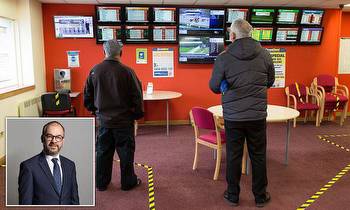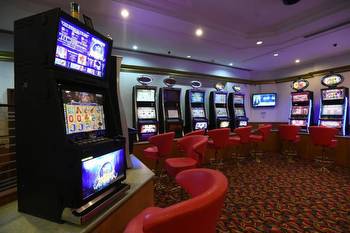Gambling addiction fuelled by poverty

Gambling addiction fuelled by poverty, researchers find
Social workers say gambling addiction among blue-collar workers is fuelled by social and welfare issues, not by an individual's passion as many might have thought. NGOs and government agencies are working together to provide rehabilitation.
Asst Prof Pattamaporn Sooksomsod, from Phra Nakhon Si Ayutthaya Rajabhat University, said gambling addiction arises from workers being paid too little to feed their family.
Most workers in factories work overtime, which takes away their free time for other recreational activities.
"Everyone has their own Facebook account. Just type in a few words and a list of gambling websites shows up. There will also be game plans for gamblers and 24-hour group chats for people to access online gambling. It only takes a few seconds after wiring the money to access the games," she said.
Based on her research about the effects of online gambling among workers in the manufacturing industry in Ayutthaya, workers do not see online gambling as a problem. Instead, it's their side income.
Many have set up limit such as not losing more than 300 baht per day. They often think the money they earn from gambling can contribute to their daily expenses. Still, few keep a tally of how much they have lost.
Players aim to make high returns from the games but they are more likely to end up heavily indebted to loan sharks. Once their financial situation deteriorates, the stress tends to affect their relationships, work and health.
The most popular online gambling games among workers include slot machines, the illegal lottery and sports betting, she told participants in the "Gambling Activities in a Daily Life of Workers in Manufacturing Industry" seminar, organised recently by the Center for Gambling Studies and the Women and Men Progressive Movement Foundation with support from the Thai Health Promotion Foundation (ThaiHealth).
A glimpse of wealth
Asst Prof Tanit Toadithep, from Burapha University, said workers who gamble are often the family's main breadwinner. They do not wish to spend their lives working in factories but would rather save a sum of money large enough to start a small business at home.
But most workers still live from hand to mouth. Many who work in industrial estates pay off pickup trucks or motorcycles by instalment because public transport is not available in the area. Gambling offers a rare ray of hope.
''However, the more they bet, the more they lose,'' Asst Prof Tanit said.
He gave as an example workers in the Eastern Economic Corridor (EEC): when gambling addicts lose control over their betting, they will try everything to make a return. Eventually, they could end up losing all their money, breaking up with their partner and might even quit their job.
Assoc Prof Lae Dilokvidhyarat, president of the Gambling Rehabilitation Direction Division of ThaiHealth, agreed that gambling addiction among low-income workers is the result of poverty.
"We tend to think about gambling addiction as an individual issue but it is actually a social and welfare issue which requires work from various agencies to solve," he said.
He proposed workers must be paid a reasonable wage which satisfies their life demands. Once they earn enough, the stress that poverty brings will disappear. Then, there will be no point in betting their hard-earned money on games that are impossible to win.
Suppressing gambling
Jirasak Lamlert, president of Nippon Steel Corp Labour Union, said most gambling addicts spend 5-10% of their wages on betting games. Instead of gambling, the union has tried to convince workers to save the same amount for family or household expenses.
Many employers in manufacturing have joined anti-gambling campaigns, as the outcome directly benefits business and union relations, he said.
Wongjan Janyim, coordinator of the Women and Men Progressive Movement Foundation, said anti-gambling campaigns sponsored by ThaiHealth offer counselling to workers addicted to gambling, and help them quit their habit.
Ms Wongjan said the network has labour unions to the campaigns. Around 70% of participants are now spending less money on betting and have started to save enough for their families, she said.

































